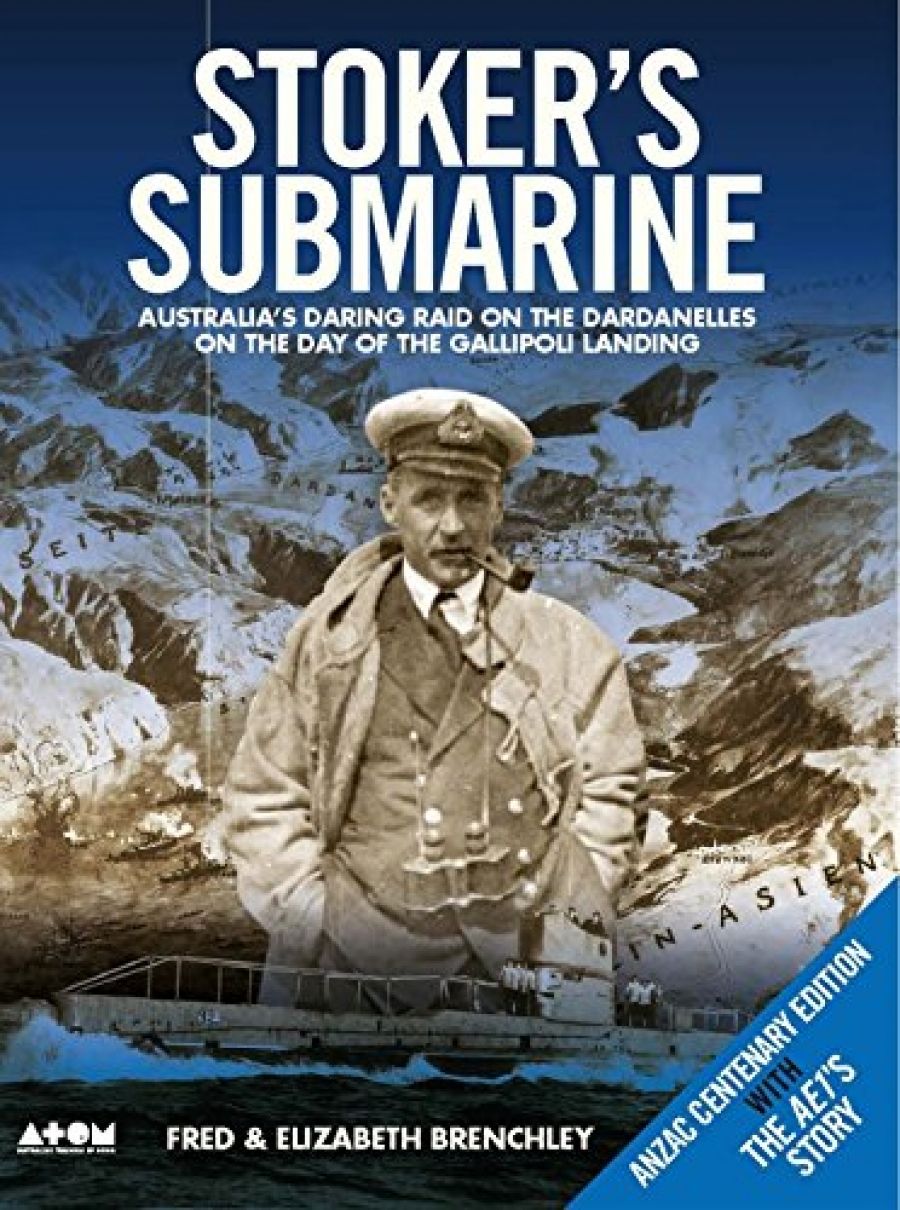
- Free Article: No
- Contents Category: Military History
- Review Article: Yes
- Article Title: Deeds That Didn’t Win the Empire
- Online Only: No
- Custom Highlight Text:
I remember reading a book entitled Deeds That Won the Empire at primary school. Mainly, it seemed to be about the slaughter of various groups of native races by the superior technology and organisation of the West, always personified by focusing on an intrepid leader called Carstairs or Hethington-Bloggs, or some such name. Even in the 1950s, the book had a desperately old-fashioned feel to it. This type of writing, one felt, could not last.
- Book 1 Title: Stoker’s Submarine
- Book 1 Biblio: HarperCollins, $29.95 pb, 264pp
- Book 1 Cover Small (400 x 600):

- Book 1 Cover (800 x 1200):

One explanation is that many military historians seem to me to be the last romantics. Often they will not or cannot contemplate the reality of industrial war. They hanker after battlefields of yore where individuals mattered; where a commander with a few resolute men could make a difference; where even defeat could be glorious if the setting was right. This is a particularly dangerous tendency in Australia, with the unstoppable Anzac myth about the undoubtedly brave soldiers at Gallipoli having the ability to win the campaign single-handed – but for the bungling incompetence of the British command and the less-than-Anzac qualities of British troops. The fact that infantry alone, no matter how heroic, could never have won the campaign without the essential firepower support or without the Turkish Army’s obliging surrender, and that even had those events come to pass the ‘victory’ would have led nowhere, plays less and less of a role in our remembrance of 25 April 1915.
A second explanation is that the appalling slaughter of wars such as World War I actually enhanced the need for heroic imagery. So authors turn away from the Western Front, the only area that mattered, and write about Lawrence of Arabia, such irrelevancies as the Zeebruuge raid and, of course, exotic but essentially useless campaigns such as Gallipoli. This book is an example of both these tendencies: a personalised account of a brave but futile endeavour in the context of a campaign which, even had it been successful, would not have shortened the war by a single day. Essentially, the book tells the story of an Australian submarine (the AE2, for those who like this kind of detail), which was the first to penetrate the Dardanelles Straits in April 1915. The ship sank a few small Turkish vessels, ran out of torpedoes, and scuttled itself. The crew spent the remainder of the war in a Turkish prison.
This part of the story, it needs to be said, is over by page ninety. The remainder of the book (150 pages) is about the captain’s (Stoker) less than riveting life as a civilian and a section of antiquarian biographical detail about every member of the crew of the submarine. It also needs to be said that when the authors venture into the realm of strategy they are wrong on almost every count. The Dardanelles operation was not undertaken to help the Russians but to demonstrate what British sea power could do (nothing, in the event); a mighty fleet was not assembled to do the job, just a group of obsolete battleships; a mighty army was not assembled to accomplish what the navy could not do, it was a pitifully small force; a submarine force in the Sea of Marmora could not possibly have cut Turkish communications with the peninsula, and so on.
It is perhaps a sad commentary on the state of Australian publishing that this kind of lightweight material has been produced, not by an obscure provincial press but by HarperCollins, a publisher with a fine reputation for serious works of history. Despite this, the book should sell well, catering as it does for that insatiable market that likes its wars romantic and is not put off by dialogue laced with ‘Ye Gods’ and ‘Hello Old Chap’.


Comments powered by CComment